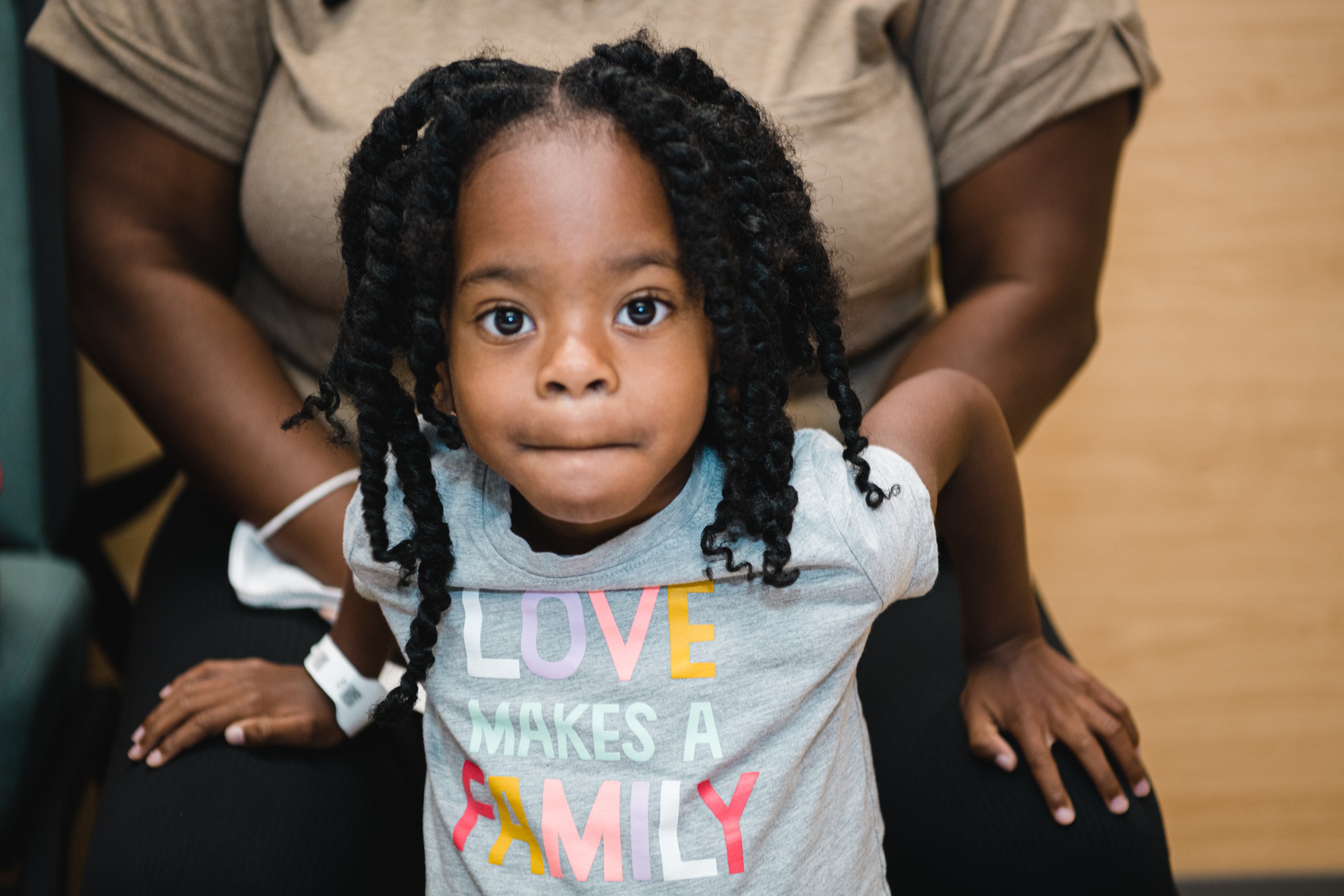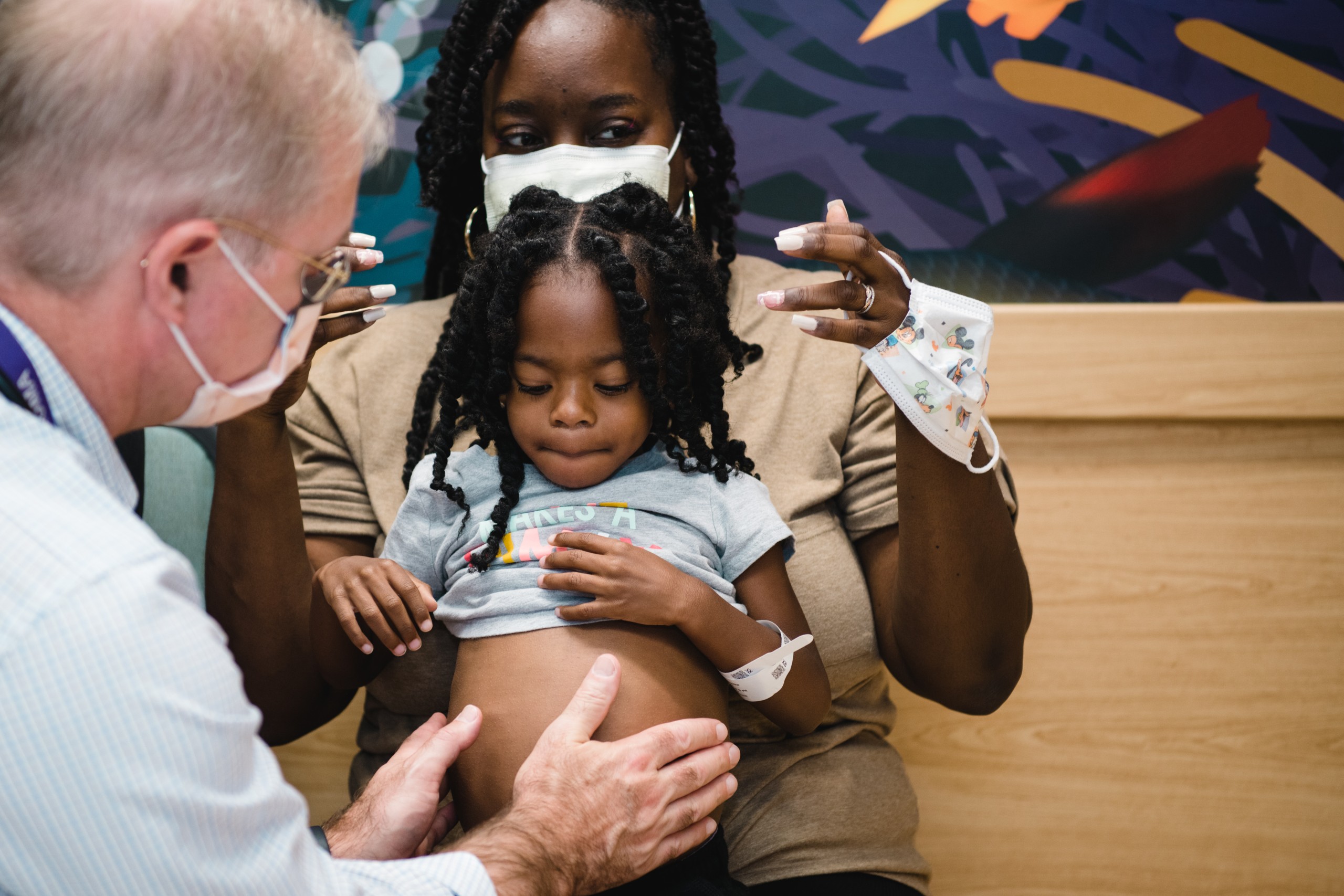Roads to recovery
The NICU team stabilized Kali, and the pediatric surgery team performed a biopsy, quickly establishing a diagnosis of Hirschsprung’s disease. Children with Hirschsprung’s disease are missing the nerves in part of their large intestine, which can cause life-threatening problems for small babies.
Hirschsprung’s disease is a rare condition – it affects about 1 in every 2,500 babies born in the U.S. – and rarer still in Black children like Kali. The usual treatment is surgery, but at less than 3 pounds, Kali was too little for the procedure. For the time being, her care team focused on helping her grow stronger.
Twin Jada was still in Danbury, and Krystin and husband Jermaine traded off being with their babies, with the constant support of their care teams. When Krystin arrived at the Danbury NICU, straight from seeing Kali in Hartford, she would often find Jada in the arms of a nurse on break.
“It warmed my heart,” she said. “They were there for her at a time when I had to be there for Kali.”
The blur of highways and NICUs stretched from weeks to months, until both girls were finally discharged home. Kali’s journey, however, wasn’t quite over.
Once she was big enough, Connecticut Children's Pediatric Surgery team developed a plan: They would use a minimally invasive approach to remove the diseased segment of Kali’s large intestine, and allow her intestines to function normally again.




